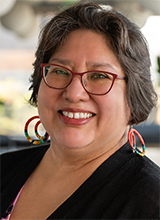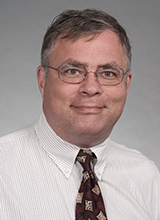
Personal Statement
Myra Parker, JD, PhD is an Associate Professor of Psychiatry and Behavioral Sciences, and Director of Seven Directions: A Center for Indigenous Public Health, based within the Center for the Study of Health and Risk Behaviors, University of Washington. She received her doctorate in Health Services at UW School of Public Health, and has been a member of the faculty since 2014.
Dr. Parker’s research and clinical interests include: (1) cultural adaptation of alcohol and drug interventions among American Indians and Alaska Natives (with a particular focus on tribal college drinking harm reduction), (2) development and testing of parenting interventions to support early childhood development in American Indian and Alaska Native communities, (3) co-morbidity of substance use with depression, suicide, trauma, and PTSD, (4) research capacity development, including ethical aspects of research, for tribal and urban Indian communities; and, (5) dissemination and translation of evidence-based prevention and intervention approaches at the individual, institutional, and community level, including policy development. She has worked with tribal and urban Indian communities across the United States on these topics.

Personal Statement
My clinical interests include diagnosis and psychopharmacology of complex mood and anxiety disorders and psychosis. My research program investigates the molecular neuroscience of behavior using animal models with a focus on the involvement of the serotonin system and the neurocircuitry and plasticity involved in stress and addiction.
My lab uses rat and mouse models to investigate stress and addiction mechanisms. The lab is unusual because we pursue a very broad range of methods, including molecular, cellular, neuroanatomical, and behavioral levels of organization. We have focused on serotonin receptors historically but increasingly we are using novel molecular and genetic tools to dissect the involvement of key neural circuits in behavioral models of stress and/or addiction.
The main strategies include a range of behavioral models, intersectional transgenic and viral-mediated gene transfer manipulations of gene expression, neuropharmacology, engineered receptors (DREADDs), fiber photometry, calcium imaging, two-photon microscopy, RNAseq and RTqPCR (using RiboTag pull-down). We are trying to push the envelope in developing and using methods that allow us very precise manipulations or readouts from specific pathways such as the projections from nucleus accumbens to ventral tegmentum or lateral habenula to dorsal raphe nucleus. We are also exploring the role of microglia, the innate immune cells in the brain, during early stages of drug and alcohol withdrawal in advance of typical activation of neuroinflammation.
Personal Statement
I am a national expert on collaborative care and specifically, on training teams to implement and deliver mental health treatment in primary care settings. My passion for translating complex research ideas into practical real-world applications began when I received my MD and PhD in Anatomy and Neurobiology as part of the Medical Scientist Training Program at the University of California at Irvine.
I am currently a Professor in the Department of Psychiatry and Behavioral Sciences at the University of Washington where I have developed additional expertise in suicide prevention training, mental health workforce development, adult learning best practices, and mentorship. I am the Co-Director of the AIMS Center (Advancing Integrated Mental Health Solutions) and Director of the UW Integrated Care Training Program for residents and fellows.
Personal Statement
My work focuses on the integration of mental health services and general medical care and on translating research on evidence-based mental health interventions into effective clinical and public health practice. I have published over 300 scientific papers and I am the recipient of numerous federal and foundation grants and awards for my research on integrated behavioral health care. I work with national and international organizations dedicated to improving behavioral health care for diverse populations. I have served as Senior Scientific Advisor to the World Health Organization and as an advisor to the President’s New Freedom Commission on Mental Health.




